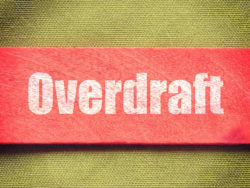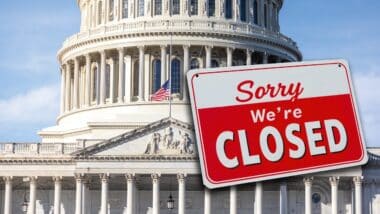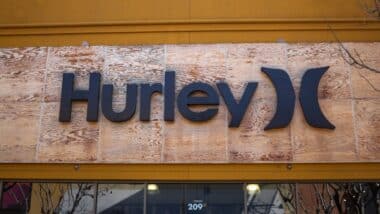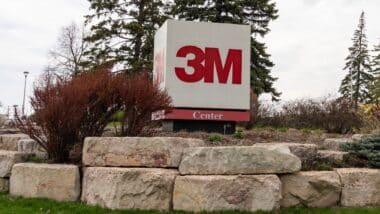 Bank and credit union customers wondering how overdraft works should be wary of the risk of getting hit with multiple overdraft fees
Bank and credit union customers wondering how overdraft works should be wary of the risk of getting hit with multiple overdraft fees
Overdraft protection is now offered at a number of different financial institutions. Here’s how overdraft works, in a nutshell: In the past, a bank or financial institution would conventionally refrain from honoring a transaction given insufficient funds. But how overdraft works is that instead of declining the transaction, the bank or credit union pays it on the customer’s behalf, or transfers funds from a linked savings account to cover the transaction.
If you have ever written a check or used a debit card without having sufficient funds and incurred a fee, without the transaction being declined, then you’ve utilized the bank’s overdraft protection service.
How overdraft works may help the bank customer in many ways. For one, it helps pay for expenses when you have insufficient funds in your account. This can get you out of trouble when you really don’t have the funds during a point of sale transaction or to cover a check. Without overdraft protection, your transaction would be declined.
There are also different types of overdraft protection that a consumer may utilize. Fees may be charged differently with each type although the service still transfers funds to your account in the event of an overdrawn checking account.
One type is to opt in for overdraft coverage for ATM and one-time debit card transactions. In this way, you allow the financial institution to cover ATM overdrafts and one-time debit card transactions.
Another type of overdraft is to opt in for overdraft coverage using a linked to a line of credit. In the event of an overdrawn account, the funds used to cover the transaction will be assessed to your line of credit.
Third, you may be eligible to link your account to secondary checking accounts, savings accounts, or money market accounts. Funds from those accounts can be transferred to your checking account to cover transactions that would have otherwise caused an overdraft.
However, there are some drawbacks to utilizing an overdraft protection service. The main drawback is that a bank will charge an overdraft protection fee for each transaction. Typical overdraft charges are $34 per overdraft item. About $10-$12 is also applied to overdrawn checking accounts that are linked to secondary checking accounts, savings account, money market accounts or lines of credit.
More fees may apply if the customer doesn’t quickly return their account to good standing. Extended overdraft charges may apply if the account is overdrawn for a certain number of days.
Customers who don’t understand how overdraft works are at risk for incurring a big balance in fees if they don’t keep an eye on their account balance. In this case, a customer may be charged hundreds of dollars for small banking transactions that overdrew the consumer’s bank account in the first place.
According to recent reports, moreover, many banks have been accused of improper overdraft practices. Capital One, HSBC Bank, and many other financial institutions have been accused of posting transactions in the order that maximizes the number of overdraft fees.
By posting a transaction in the order of greatest amount, instead of the order in which the transaction was made, the bank can deplete the customer’s account sooner. Therefore, if a consumer makes a transaction of a very large amount, which thereby overdraws their account significantly, a bank might want to post that transaction first, rather than one with a smaller amount, so that each subsequent transaction made thereafter is charged an overdraft protection fee.
Do YOU have a legal claim? Fill out the form on this page now for a free, immediate, and confidential case evaluation. Some of the banks and credit unions being investigated include, but are not limited to:
- HSBC Bank
- UMB Bank
- State Employees Credit Union
- Pentagon Federal Credit Union
- Boeing Employees Credit Union
- Alliant Credit Union
- Star One Credit Union
- First Technology Federal Credit Union
- America First Credit Union
- American Airlines Federal Credit Union
- Alaska USA Federal Credit Union
- Vystar Credit Union
- Citizens Equity First Credit Union
- Teachers Federal Credit Union
- ESL Federal Credit Union
- Patelco Credit Union
- DFCU Financial Credit Union
The attorneys who work with Top Class Actions will contact you if you qualify to let you know if an individual lawsuit or class action lawsuit is best for you. Hurry — statutes of limitations may apply.
ATTORNEY ADVERTISING
Top Class Actions is a Proud Member of the American Bar Association
LEGAL INFORMATION IS NOT LEGAL ADVICE
Top Class Actions Legal Statement
©2008 – 2025 Top Class Actions® LLC
Various Trademarks held by their respective owners
This website is not intended for viewing or usage by European Union citizens.
Get Help – It’s Free
Join a Free Bank & Credit Union Overdraft Fee Class Action Lawsuit Investigation
If your bank and credit union has engaged in deceptive overdraft fee practices, you may have a legal claim. Fill out the form on this page now to find out if you qualify!
An attorney will contact you if you qualify to discuss the details of your potential case.
PLEASE NOTE: If you want to participate in this investigation, it is imperative that you reply to the law firm if they call or email you. Failing to do so may result in you not getting signed up as a client or getting you dropped as a client.
In order to properly investigate overdraft fee claims, you may be required to disclose bank statements to overdraft fee attorneys. Please note that any such information will be kept private and confidential.
ATTORNEY ADVERTISING
The choice of a lawyer is an important decision and should not be based solely on advertisements.
E-mail any problems with this form to [email protected]
PAID ATTORNEY ADVERTISEMENT: THIS WEB PAGE IS AN ADVERTISEMENT AND THE PARTICIPATING ATTORNEY(S) ARE INCLUDED BECAUSE THEY PAY AN ADVERTISING FEE. The attorney in charge of this advertisement is T.Kick. It is not a lawyer referral service or prepaid legal services plan. Top Class Actions is not a law firm. Top Class Actions does not endorse or recommend any lawyer or law firm who participates in the network, nor does it analyze a person’s legal situation when determining which participating lawyers receive a person’s inquiry. It does not make any representation and has not made any judgment as to the qualifications, expertise or credentials of any participating lawyer. No representation is made that the quality of the legal services to be performed is greater than the quality of legal services performed by other lawyers. The information contained herein is not legal advice. Any information you submit to Top Class Actions does not create an attorney-client relationship and may not be protected by attorney-client privilege. Do not use the form to submit confidential, time-sensitive, or privileged information. All photos are of models and do not depict clients. All case evaluations are performed by participating attorneys.












